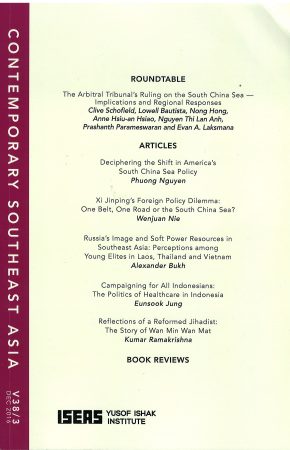Home / Books & Journal Articles / Journal Article / The South China Sea Arbitral Tribunal Award: Political and Legal Implications for China


Executive Director & Senior Fellow
The release of the Arbitral Tribunal’s award on 12 July 2016 brought to an end the arbitration case on the South China Sea which the Philippines had unilaterally brought against China in January 2013. This thoroughly one-sided award ruled that many of China’s maritime claims in the South China Sea were contrary to the United Nations Convention on the Law of the Sea (UNCLOS) and had thereby violated Philippine sovereign rights and freedoms. The ruling does not mean that the dispute between the Philippines and China is over. But it does have political and legal implications for China, especially its future approach to managing and eventually resolving the country’s maritime disputes.

Executive Director & Senior Fellow
Dr. Nong Hong holds a PhD of interdisciplinary study of international law and international relations from the University of Alberta, Canada and held a Postdoctoral Fellowship in the University’s China Institute. She was ITLOS-Nippon Fellow for International Dispute Settlement (2008-2009), and Visiting Fellow at Australian National Centre for Ocean Resources and Security (2019), the Center of Oceans Law and Policy, University of Virginia (2009) and at the Max Planck Institute for Comparative Public Law and International Law (2007). She is concurrently a research fellow with China Institute, University of Alberta, Canada, and the National Institute for South China Sea Studies, China. Her research takes an interdisciplinary approach to examining international relations and international law, with focus on International Relations and Comparative Politics in general; ocean governance in East Asia and the Arctic; law of the sea; international security, particularly non-traditional security; and international dispute settlement and conflict resolution.

The Institute for China-America Studies is an independent nonprofit, nonpartisan research organization dedicated to strengthening the understanding of U.S.-China relations through expert analysis and practical policy solutions.
1919 M St. NW Suite 310,
Washington, DC 20036
icas@chinaus-icas.org
(202) 968-0595
© 2025 INSTITUTE FOR CHINA-AMERICA STUDIES. ALL RIGHTS RESERVED.
US, China and EU: The race for Greenland’s mineral riches